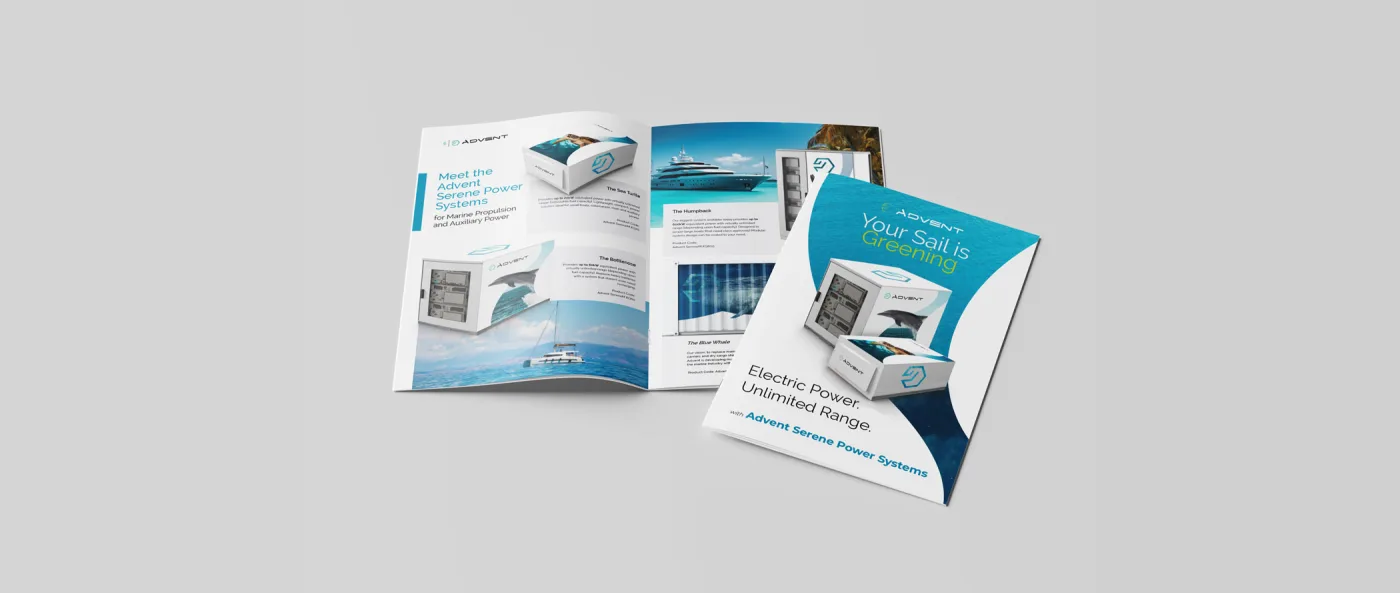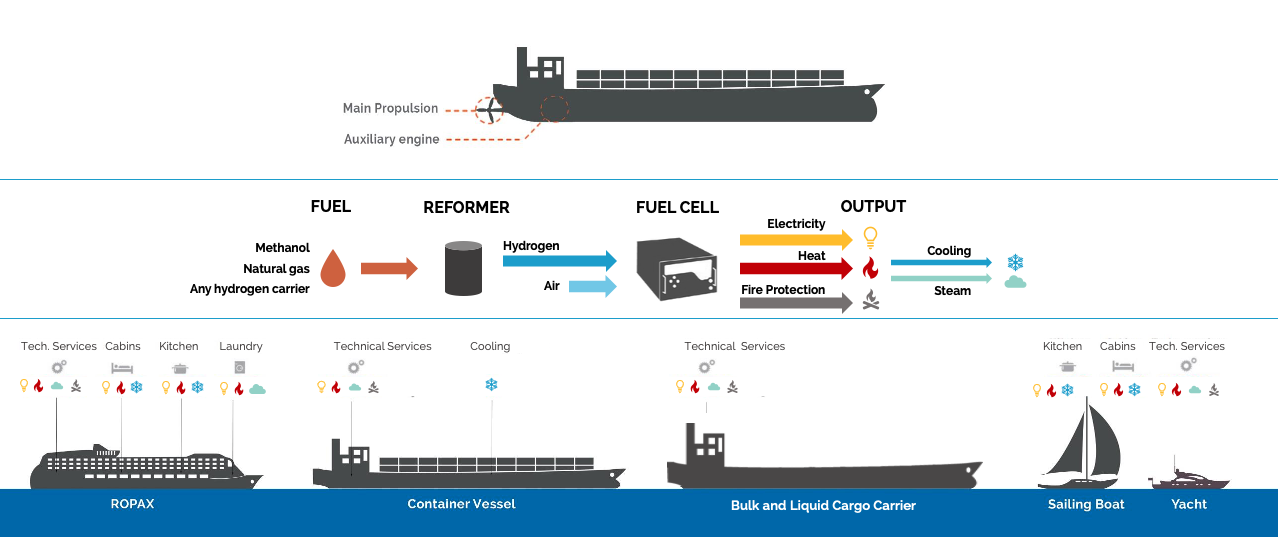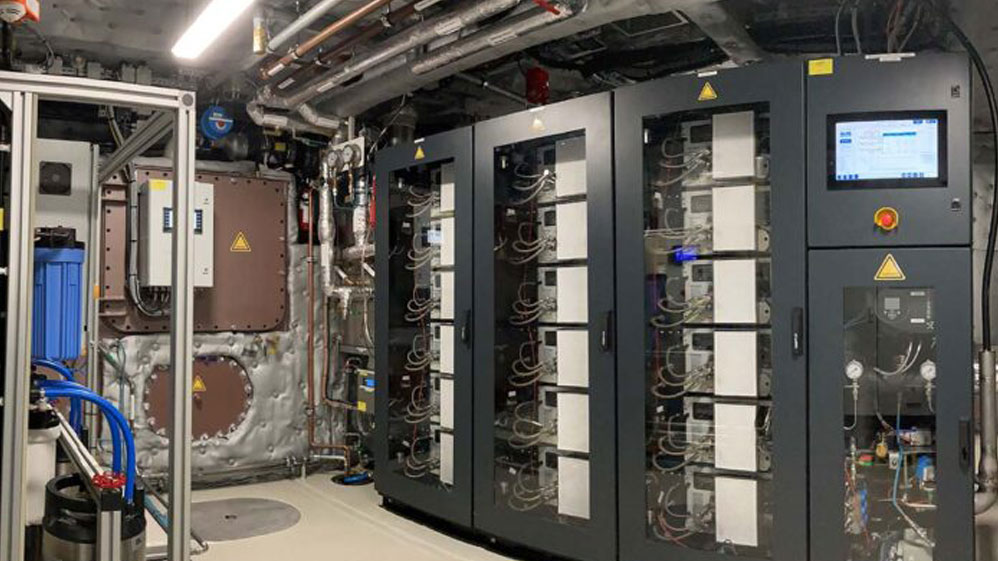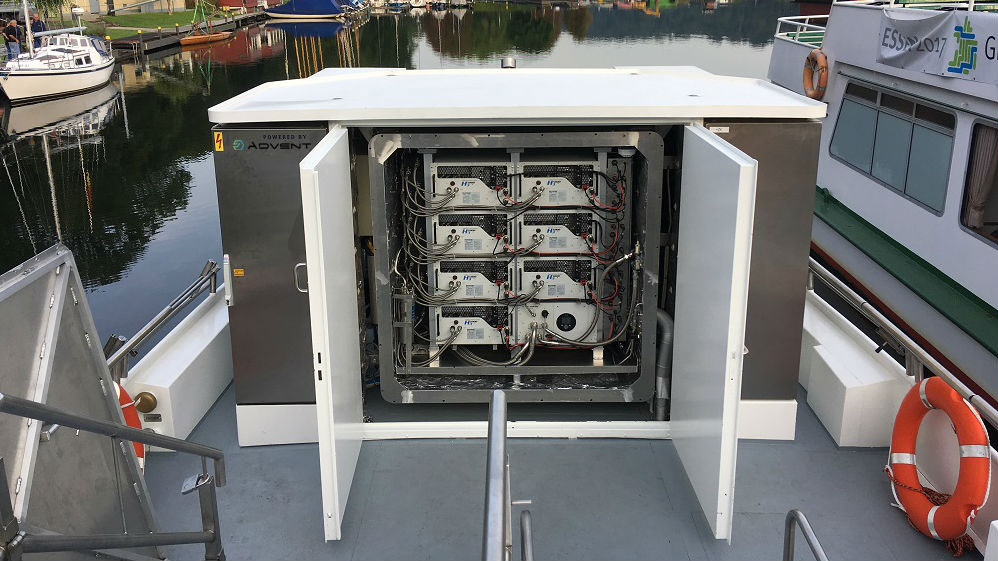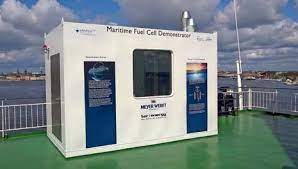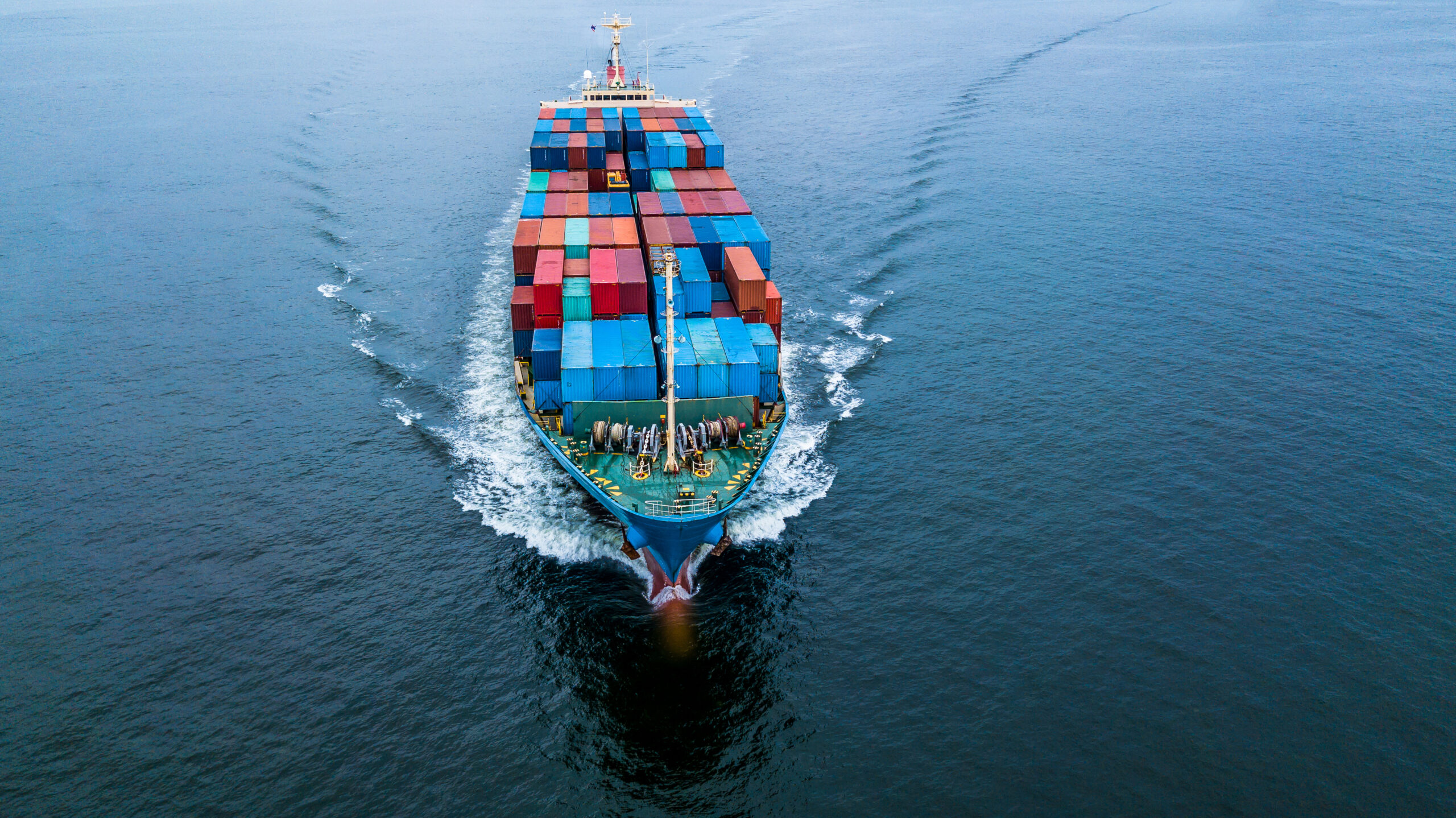
Our fuel cell systems are ready for the net-zero challenge
The course to net zero emissions in maritime transportation is being set and defined now. Over 90% of world trade is carried across the world’s oceans by nearly 90,000 marine vessels. Simultaneously, IMO has set a target for the maritime industry to cut emissions by 50% by 2050.
Advent is ready to address this challenge with customizable fuel cell systems that are modular and fully scalable. Our resilient fuel cells are fuel-flexible, allowing the use of methanol, natural gas, and hydrogen for primary propulsion or auxiliary power needs.
This flexibility puts Advent’s fuel cell systems in a unique position to accelerate the transition towards net-zero today.
Areas of applications:
- Propulsion and power for smaller vessels (leisure and sailing boats, ferries, and inland river vessels)
- Redundant power to existing power applications, i.e., replacing an existing diesel generator
- Power for auxiliary loads on larger vessels
- Cold ironing power to vessels at port
Key Advantages of Advent Fuel Cells
Fuel Flexible
Our “Any Fuel. Anywhere.” low-cost, fuel-flexible, resilient fuel-cell technology allows us to use Methanol, Natural Gas, Hydrogen, and potentially other fuels like Ammonia for primary propulsion or auxiliary power systems.

Zero Emissions
Unlike diesel generators, hydrogen fuel cells do not produce combustion; therefore, there are no NOx, SOx, or particulate emissions from the unit.

Quiet Operation
Our systems are silent, meaning no more noisy or vibrating operations.

Flexible and Modular Design
Customized fuel cells for any type of vessel. Scalable and built to meet challenging power requirements.
Reduce System Maintenance
No moving parts. Very low need for maintenance, repair and operations (MRO).

DC Power Generation
Ability to convert into DC power supply.
Methanol is tomorrow’s
hydrogen, today.
Methanol, an excellent hydrogen carrier that can be used as a hydrogen store for fuel cells, can be easily turned into hydrogen through a catalytic process using a fuel reformer.
Advent’s reformed methanol fuel cell product portfolio provides a market-ready technology solution as the hydrogen value chain uptake is progressively ramping up.
Find out moreSchematic overview of electricity generators system in a vessel
Areas of application on board vessels and air independent propulsion integrated designs.
View SchematicCase Studies
RiverCell
A demonstration project funded by the German government. It aims at developing and demonstrating a safe practical solution for a hybrid electric energy system for inland waterway ships using fuel cells in confined maritime applications.
- 18 RMFC units stacked in parallel
- 90 Kw max output
- 1050 V power lines
- Fully automated operation
- Used for IMO and ICC CEVNI Class Rule development
MS Innogy
MS Innogy is the first vessel in Germany to be powered by methanol fuel cells, featuring a fuel cell system manufactured by Advent A/S. As part of the project, Advent A/S cooperated with the energy company Innogy, aiming to showcase the potential of methanol as a fuel of the future.
- 35kW system – seven 5kW modules integrated into one rack
- Hybrid constellation – fuel cell system and a battery pack
- Waste heat from the fuel cell to drive the methanol reformation
- Reduced noise and low vibrations
MS Mariella
Viking Line’s “Mariella” ferry service between Helsinki and Stockholm had a 90kW system comprising methanol-fueled high-temperature polymer electrolyte membrane (PEM) fuel cells installed by Advent A/S.
- Equipped with a fuel cell stack powered by a methanol fuel supply system
- The methanol fuel tank was bunkered by the truck using a standard hose
arrangement and was reformed into Hydrogen and then transformed into
90kW of electrical power.


